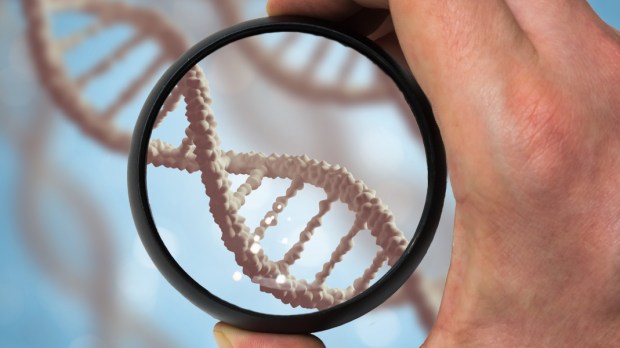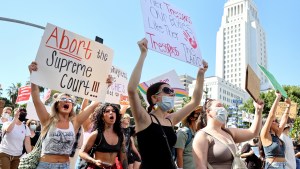A Kentucky judge has blocked two laws banning abortion in the state, partly because he reasons that the laws “adopt the view embraced by some … religious traditions, that life begins at the moment of conception.”
Judge Mitch Perry of the Jefferson County Circuit Court issued an opinion Friday allowing the state’s two clinics to continue providing abortions for now, in spite of a trigger law that went into effect the day after the U.S. Supreme Court overturned Roe v. Wade.
Kentucky’s General Assembly in 2019 passed a “trigger” law that would ban virtually all abortions in the state in the event the U.S. Supreme Court overturned Roe v. Wade. It also passed a bill that would ban abortion when a fetal heartbeat is detectable — at around six weeks gestation. The laws make exceptions in order prevent the death or permanent injury of the mother but not for rape or incest.
The Supreme Court’s June 24 Dobbs v. Jackson decision allowed the trigger law to take effect June 25. But, responding to a request by the two abortion clinics and an abortionist who owns one of them, Perry immediately issued a temporary restraining order. He heard oral arguments in the case on July 6.
His July 22 ruling extended that order, saying there is “a substantial likelihood” that the new abortion ban violates “the rights to privacy and self-determination” protected by the state constitution, the Associated Press reported.
But he also assumed that the laws are based on sectarian doctrine.
“The General Assembly is not permitted to single out and endorse the doctrine of a favored faith for preferred treatment,” Perry wrote. “By taking this approach, the bans fail to account for the diverse religious views of many Kentuckians whose faith leads them to take very different views of when life begins.”
Perry said there is “nothing in our laws or history that allows for such theocratic based policymaking.”
Churches at the forefront of the pro-life movement
Churches – especially the Catholic and Orthodox – have long been at the forefront in teaching and defending the sanctity of all human life from conception until natural death. But the fact that religious organizations have fought for a cause does not necessarily mean that the fight is based on strictly sectarian principles. Many religious individuals and churches were vocal and active in the Civil Rights movement of the 1960s, for example.
In recent years, especially since the development of ultrasound technologies and greater strides in genetics, pro-life and Catholic leaders have pointed out that their position that abortion is the taking of innocent human life is backed by scientific and medical principles. The study of genetics shows that when a human ovum is fertilized by a human sperm, a unique human life with its own DNA – distinct from mother or father – comes into existence.
Pope St. John Paul II wrote in his 1995 encyclical Evangelium Vitae, “Modern genetic science … has demonstrated that from the first instant there is established the program of what this living being will be: a person, this individual person with his characteristic aspects already well determined. Right from fertilization the adventure of a human life begins, and each of its capacities requires time — a rather lengthy time — to find its place and to be in a position to act.”
Recently, Archbishop Joseph Naumann of Kansas City, Kansas, wrote in an op-ed piece in the Wichita Eagle that many laws coincide with religious beliefs, but, “The mere fact that a law coincides with religious beliefs does not mean it is an impermissible imposition of religion.”
“From a Catholic perspective, abortion is not primarily a religious issue but a fundamental human rights issue,” Archbishop Naumann wrote, responding to criticism of the Church’s support for a pro-life amendment in Kansas to be voted on next week. “Our faith helps us understand the dignity of every human life created in the divine image as taught in the Hebrew scriptures, but reason alone is sufficient to know that it is wrong to destroy an innocent human life.”
Kentucky Attorney General Daniel Cameron, a Republican running for governor, said he was disappointed by Judge Perry’s ruling and will appeal it to the state appeals court, AP reported. The wire service noted that in November Kentuckians will also vote on a constitutional amendment that “would ensure there are no state constitutional protections for abortion.”



